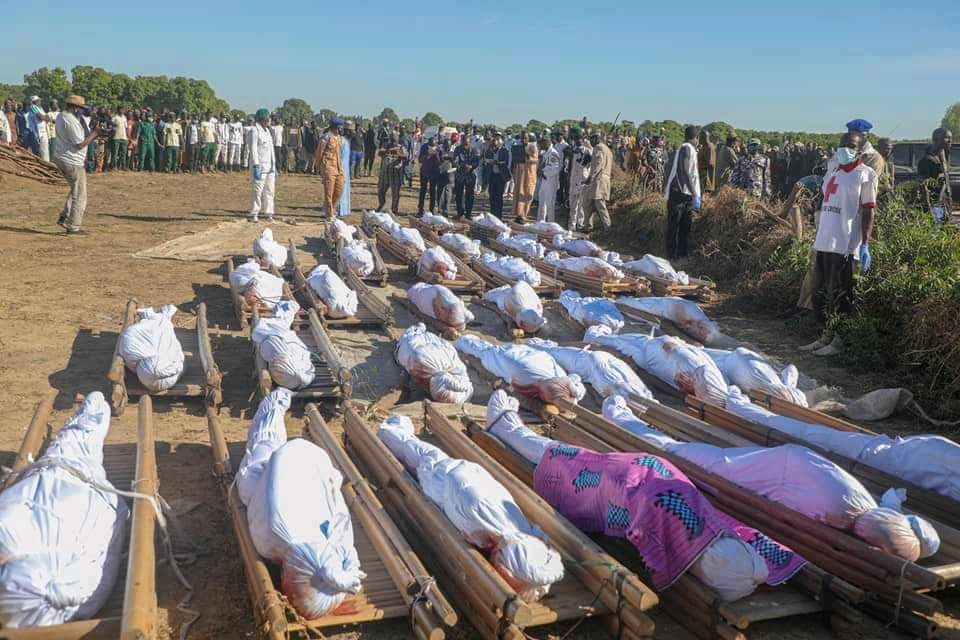Nigerians are still trying to make sense of the massacre of 43 rice farmers in Zabamari area in Borno State last Saturday. The first problem is the number involved. While 43 is what is largely referred to, a much higher figure of over 100 has been credited to a named UN official. The correct number might lie in-between.
Some presidential spokespeople have suggested it could have happened because the farmers did not get security clearance before embarking on the risk in a state in which military clearance is required for people to carry out much of the routines of life. While this offers some clarification, it contradicts a much earlier claim that the insurgents have since been technically defeated. What the massacre tend to reveal is that the idea of Boko Haram technically or otherwise defeated doesn’t jell at all. A technically or otherwise defeated Boko Haram should not have the capacity to mount this level of killing spree said to have been conducted at a very leisurely pace last weekend.
There is an element of throwing up the hands by those who emphasise the fact of the incumbent National Security Adviser and the Chief of Army Staff all coming from Borno State where the unbelievable happened. The easy inference is: if their sons are unable to protect these farmers, then who else can? In a way, this is an uncomplicated inference but it cannot be dismissed. Is it possible that the present administration anticipated this sort of situation by concentrating appointment of security chiefs in the Northeast? It would have been difficult to imagine the national mood today if the security chiefs were from somewhere else. All manner of allegations would have been flying.
Immediately before and after the massacre, the Northern region appears to have turned on itself. The Sultan spoke, saying insecurity had reached an unprecedented level where the perpetrators go from house to house. It is an old question: where are the thousands of retired military men, some as young as 50, populating the region in terms of a comprehensive response to the insecurity crisis? Or is the Buhari administration such that no such effort can work? This has become a relevant question given what happened a week ago: the security breach right inside Ahmadu Bello University, Zaria.
The overarching question is what ails the security architecture to be unable to overcome the generalised insecurity since 2016? Is it lack of financial resources or a crisis of military leadership or some too powerful (external) forces at work or a case of overwhelming corruption? And when will this nightmare end?




























